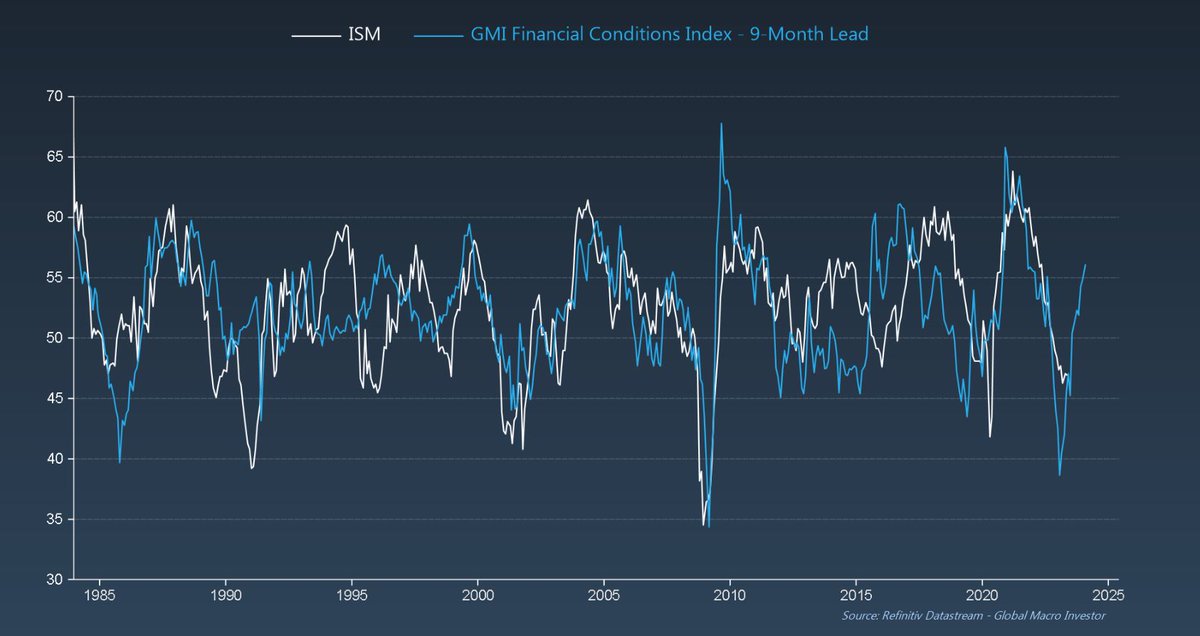A recent post by John Authers @johnauthers raises some interesting questions about the US consumer market and #crypto industry. Let's look at some important points.
1/10 💵 Consumer discretionary stocks are outperforming staples, which is usually a sign of economic expansion. However, retail sales growth remains slow, causing some uncertainty. #Markets 

2/10 📉 Surveys like those run by the University of Michigan and the Conference Board show that consumer expectations have waned since the start of the year. #ConsumerSentiment 

3/10 💳 Credit card delinquencies are on the rise, particularly among younger demographics who tend to spend more. This could signal trouble ahead. #CreditCard 

4/10 📊 Spending figures overall don’t seem healthy. Consumption of goods surged during the pandemic, leveled off, and services spending stopped growing about a year ago when excluding health care and housing. #SpendingTrends
5/10 💰 If there's optimism, it's around liquidity. Government stim checks during the pandemic have left a lot of money in consumers' pockets. The question is how long this can last. #Stimulus 

6/10 📈 The stock market might be seeing things not apparent in the data. The rise in consumer discretionary stocks could be due to management briefings or balance sheet analysis. #StockMarket
7/10 🇺🇸 Partisanship impacts the perception of economic conditions. Republicans and Democrats have drastically different views on the economy, possibly skewing survey results and actual spending decisions. #Partisanship 

8/10 💸 In the #crypto world, the US SEC is getting tougher. It's accused Binance and Coinbase of mishandling funds and breaking rules, causing their value to drop sharply. #SECCrypto
9/10 📝 Regulation ambiguity remains a big challenge for the crypto industry. It's causing uncertainty for investors and platforms alike, leading to calls for clearer laws. #CryptoRegulation
10/10 📉 As regulatory action increases, Bitcoin's libertarian appeal could diminish, impacting its price. These lawsuits, though creating short-term volatility, might shift the industry away from its original ethos. #Bitcoin
• • •
Missing some Tweet in this thread? You can try to
force a refresh

 Read on Twitter
Read on Twitter






